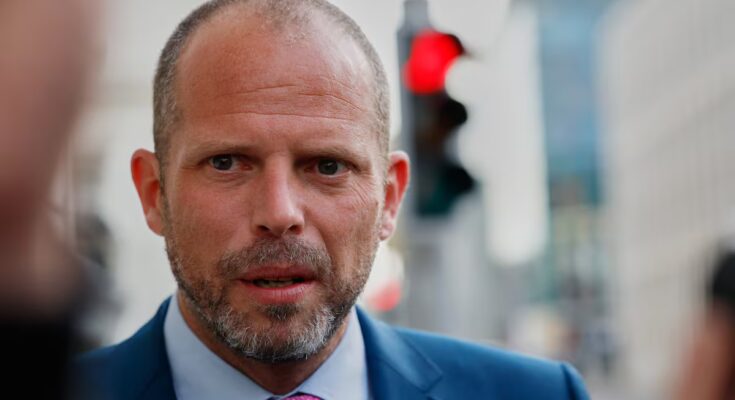Belgium wants to better protect itself from the threat posed by mysterious drones that have been flying over military bases and other sensitive areas of the country for more than a month and which have even forced the temporary closure of several commercial airports this week. After an emergency meeting of the National Security Council, the Belgian government announced the strengthening of surveillance measures which it also seeks to coordinate at an international level, even if at the moment it is not thinking of activating NATO, despite the Alliance having its headquarters in Brussels. The Russian embassy in the Belgian capital has meanwhile denied that Moscow is behind the incidents.
At the end of the meeting with the main ministers responsible for the country’s security and intelligence services, the Minister of Defense, Theo Francken, announced his intention that the National Aerospace Security Center (NASC), responsible for coordinating airspace security, will be “fully operational” from January 1st, so that “all security services have a global image of the airspace”.
Meanwhile, the Flemish nationalist politician warned the press, the motto is to destroy, whenever possible, any suspicious device.
“We cannot allow hostile drones to enter our territory or fly over our military bases,” he stressed.
“The orders and directives are clear: if possible, we will shoot them down,” he recalled of an order issued earlier in the week, after several days of repeated drone sightings over key military bases that recurred this week. Also on Tuesday, the capital’s Zaventem and Liège airports had to suspend flights twice after several drones were spotted, causing air chaos that continued into the next day.
Francken, who spoke about the situation with NATO Secretary General Mark Rutte last night, also evoked the need for action against drones to have an international dimension, given that Belgium is not the only European country that has suffered this type of accident in recent times, but also given the multiple borders it shares with other neighboring countries. However, Alliance sources confirm, for the moment Belgium has not asked to activate Article 4, which provides for consultation with allies in the event that a partner feels threatened.
“We are very busy internationally. We have many good neighbors and neighboring countries, NATO allies, and everyone is trying to help us,” Francken said simply. Shortly afterwards, he retweeted a message from his Dutch counterpart, Ruben Brekelmans, in which he expressed his “support” for Belgium and assured his country’s support for neighboring authorities.
“We are following the situation from the Netherlands. We are also in close contact with the Belgian authorities in this regard (…) Of course we support Belgium!” Brekelmans said.
For the CEO of Indra, José Vicente de los Mozos, the multiple drone accidents that Belgium has suffered in recent weeks demonstrate the need for Europe to equip itself with an anti-aircraft system.
“Europe needs an anti-aircraft system, this is very clear. I think the daily threats from drones in this country show that we need a response,” he commented during an event organized by the New Economy Forum in Brussels in conjunction with the Belgian Security Council meeting.
Francken also insisted on the need to improve the Belgian anti-drone system, for which he has prepared a 50 million euro plan for the acquisition of equipment for the detection, identification and neutralization of drones which the Council of Ministers will have to analyze at its meeting on Friday.
During the meeting, various legislative measures were also discussed to strengthen surveillance and clarify how to act in the face of a threat such as that of drones.
“If the police want to be able to do something, there must be a clear legal framework. It is our job as politicians to deal with this,” Interior Minister Bernard Quintin said. The head of internal security recalled in this sense that the law already provides for the registration of drones and that they are prohibited from flying over airports. “There is a regulatory framework that will be used better. I will present a royal decree banning unauthorized drones over sensitive areas (…) this will improve coordination,” said Mobility Minister Jean-Luc Crucke.
Although Moscow has not been publicly accused of these incidents (and no minister did so on Thursday), the Russian trail is the main one run by the secret services, according to the national press. Something that the Russian embassy in Brussels has categorically denied.
“It is regrettable that the recent wave of speculation about drone incidents in Belgium continues to worsen (…) we insist that the Russian Federation is in no way involved in any drone operations in Belgian airspace. We have no motive or interest in such activities,” the Russian diplomatic representation said in a statement to the Flemish channel VRT.



